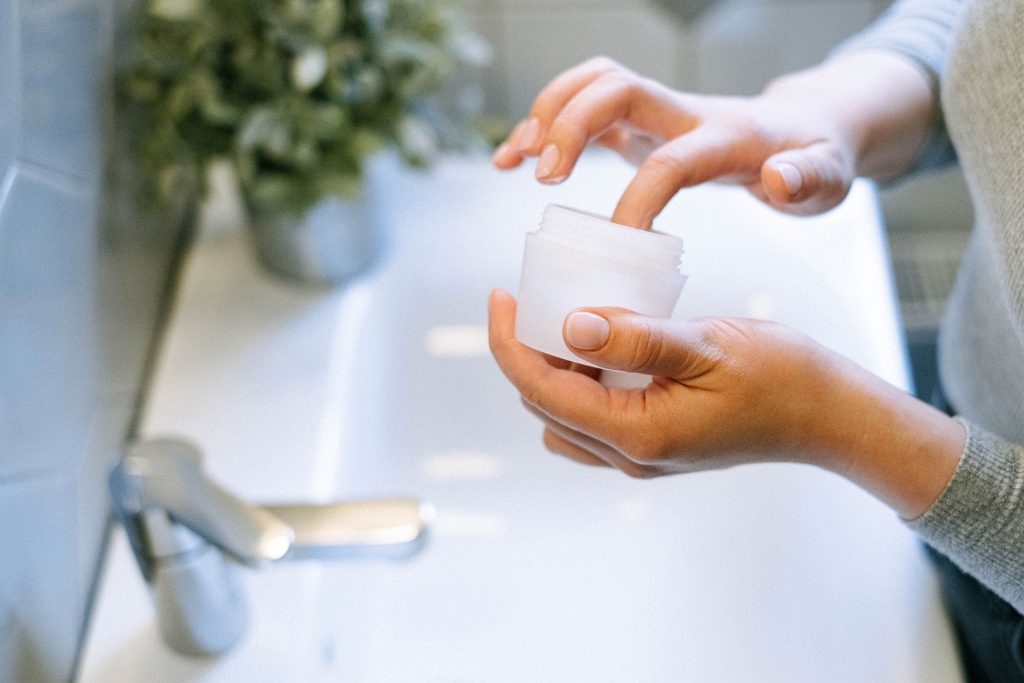Learn effective tips and tricks to combat oily skin and achieve a fresh, matte complexion.
How to Combat Oily Skin: Tips and Tricks

Are you tired of feeling like an oil slick every time you step outside? Well, fear not! I’m here to share some tips and tricks on how to combat oily skin and reclaim your confidence. Say goodbye to that greasy shine and hello to a fresh, matte complexion. Let’s dive in and understand oily skin better, shall we?
Understanding Oily Skin
So, what exactly is oily skin? It’s like having your very own built-in oil factory that keeps pumping that shine all day long. Oily skin occurs when your sebaceous glands go into overdrive, producing an excess amount of natural oils called sebum. But fret not, dear reader, for there are ways to manage this oil slick situation!
What is Oily Skin?
Oily skin is often accompanied by enlarged pores, a shiny T-zone (forehead, nose, and chin) that can rival a disco ball, and a constant battle with acne. But remember, having oily skin isn’t all bad! In fact, it can help keep your skin moisturized and delay the onset of those pesky wrinkles.
Let’s delve deeper into the fascinating world of oily skin. Did you know that the sebaceous glands, responsible for producing sebum, are most abundant on your face and scalp? That’s right, your face is the ultimate oil-producing hotspot! These glands are essential for maintaining the overall health of your skin, as they provide natural lubrication and protection against harmful external factors.
However, when these glands produce an excess amount of sebum, it can lead to the dreaded oiliness. The shiny T-zone is a telltale sign of oily skin, as the sebaceous glands in this area are particularly active. But fear not, for there are ways to keep the shine under control and achieve a balanced complexion.
Causes of Oily Skin
There are many factors that can contribute to oily skin, such as genetics, hormonal imbalances, and even the weather. So, if your parents handed down their oily skin genes, don’t blame them – blame grandma! Thanks, Nana.
Genetics play a significant role in determining your skin type, including whether you have oily or dry skin. If oily skin runs in your family, it’s likely that you inherited those overactive sebaceous glands. But don’t despair, because with the right skincare routine and lifestyle choices, you can still achieve a healthy and radiant complexion.
Another culprit behind oily skin is hormonal imbalances. During puberty, hormonal changes can trigger an increase in sebum production, leading to oily skin and acne breakouts. This is why many teenagers struggle with oily skin during their adolescent years. Hormonal fluctuations can also occur during certain phases of the menstrual cycle, causing temporary oiliness and blemishes.
Believe it or not, even the weather can influence the oiliness of your skin. In hot and humid climates, your sebaceous glands tend to work overtime to keep your skin moisturized. The heat and humidity can stimulate sebum production, resulting in that dreaded greasy feeling. On the other hand, cold and dry weather can strip your skin of its natural oils, causing it to produce even more sebum to compensate for the loss.
Now that you have a better understanding of the causes of oily skin, it’s time to take charge of your skincare routine. By implementing effective cleansing, exfoliating, and moisturizing techniques, you can strike a balance and keep your skin looking its best.
The Impact of Oily Skin
Having oily skin does more than just affect your appearance. It can have physical and psychological effects that can dampen your spirit. Let’s take a closer look, shall we?
Oily skin is characterized by excess sebum production, which can lead to a range of physical effects. One of the most common issues faced by individuals with oily skin is clogged pores. When excess oil combines with dead skin cells and other impurities, it forms a sticky mixture that can block the pores. This can result in the formation of pesky blackheads and acne, creating a veritable obstacle course on your face. But worry not, brave warrior, for there are ways to fight back against these unwelcome visitors.
Regular cleansing is essential for individuals with oily skin. Using a gentle cleanser that is specifically formulated for oily skin can help remove excess oil and impurities without stripping the skin of its natural moisture. Additionally, exfoliating once or twice a week can help unclog pores and prevent the formation of blackheads. Incorporating a clay mask into your skincare routine can also be beneficial, as it can absorb excess oil and purify the skin.
While the physical effects of oily skin can be frustrating, it’s important not to overlook the psychological impact it can have. Dealing with oily skin on a daily basis can affect your self-esteem and confidence. It’s not easy feeling like a walking oil slick when everyone else around you seems to have magically effortlessly smooth skin. But fear not, for there are ways to tame the oil beast and boost your confidence!
When it comes to managing the psychological effects of oily skin, adopting a positive mindset is key. Remember that having oily skin is a common condition that many people experience. It does not define your worth or beauty. Embracing a skincare routine specifically tailored for oily skin can help you regain control and feel more confident in your own skin.
Furthermore, seeking support from others who share similar experiences can be incredibly empowering. Joining online communities or support groups dedicated to skincare can provide a safe space to share your concerns, seek advice, and celebrate your progress. Remember, you are not alone in this journey.
Lastly, it’s important to remember that beauty comes in all forms, including oily skin. Embrace your unique skin type and focus on the things that make you feel confident and happy. Whether it’s a killer makeup look, a stylish outfit, or a radiant smile, your beauty shines from within.
Daily Skincare Routine for Oily Skin
Now that we understand oily skin better and its impact, it’s time to take action! Establishing a daily skincare routine is crucial in combating oily skin and keeping that shine under control. Let’s break it down, step by step!
Importance of Cleansing
The first step in your oily skin battle is cleansing. Using a gentle cleanser specifically formulated for oily skin can help remove excess oil, dirt, and impurities without stripping your skin of its natural moisture. Remember, we want to control the oil, not annihilate it!
When choosing a cleanser, look for ingredients like salicylic acid or tea tree oil. These ingredients are known for their ability to regulate oil production and prevent breakouts. Gently massage the cleanser onto your face using circular motions, focusing on areas prone to oiliness, such as the T-zone (forehead, nose, and chin).
Rinse off the cleanser with lukewarm water, making sure to remove all traces of the product. Pat your face dry with a clean towel, being careful not to rub or irritate your skin.
The Role of Toning
Toning is like the superhero sidekick in your skincare routine. It helps to further remove any remaining impurities and tighten your pores. Look for toners with ingredients like witch hazel or salicylic acid to keep those pores in check.
After cleansing, apply a small amount of toner to a cotton pad and gently swipe it across your face, focusing on areas with enlarged pores or excessive oiliness. This step helps to balance the pH of your skin and prepare it for the next skincare products.
Remember, toners are not meant to strip your skin or leave it feeling tight. If you experience any discomfort or dryness, switch to a milder toner or use it less frequently.
Moisturizing is Essential
Wait, what? Moisturizing? But won’t that make my oily skin worse? Fear not, my fellow warriors, for moisturizing is essential, even for oily skin. Look for lightweight, oil-free moisturizers that won’t clog your pores but will provide the hydration your skin needs.
When it comes to moisturizers, opt for water-based or gel-based formulas that are specifically designed for oily skin. These lightweight formulations absorb quickly and won’t leave a greasy residue on your face.
Apply a small amount of moisturizer to your face and neck, gently massaging it into your skin using upward motions. Focus on areas that tend to get dry, such as the cheeks and jawline, while avoiding the oily areas.
Moisturizing helps to maintain the skin’s natural moisture barrier, preventing it from producing excess oil to compensate for dryness. By keeping your skin hydrated, you can actually help regulate oil production and reduce the appearance of shine.
Best Products for Oily Skin
Ready to arm yourself with the best weapons to combat oily skin? Here are some recommended products that have been battle-tested and approved by the oily skin community!

Recommended Cleansers
1. Foaming cleansers with salicylic acid to gently exfoliate and remove excess oil.
2. Gel-based cleansers with tea tree oil to combat acne-causing bacteria.
3. Clay-based cleansers to absorb excess oil and leave your skin feeling refreshed.
Top-Rated Toners
1. Witch hazel toners to tighten your pores and control excess oil.
2. Aloe vera-based toners to soothe and hydrate your skin while keeping the oil at bay.
3. Rosewater toners for a gentle and refreshing boost of hydration.
Effective Moisturizers
1. Oil-free moisturizers with hyaluronic acid to keep your skin hydrated without adding extra shine.
2. Lightweight gel moisturizers that won’t feel heavy on your skin but will provide the moisture it craves.
3. Moisturizers with niacinamide to regulate oil production and fade those pesky acne scars.
Lifestyle Changes to Combat Oily Skin
Skincare products alone cannot do all the heavy lifting. Making some lifestyle changes can also greatly impact your battle against oily skin. Let’s take a look at a few simple adjustments you can make!
Diet and Oily Skin
While there isn’t a direct link between oily foods and oily skin, maintaining a healthy diet can help improve your skin’s overall health. Incorporate more fruits, vegetables, and foods rich in omega-3 fatty acids into your diet. Your skin will thank you!
Exercise and Skin Health
Regular exercise not only helps maintain a healthy weight but also promotes blood circulation, which can improve your skin’s appearance. Just remember to wash your face after exercising to remove the sweat and oil that accumulate during your workout.
Importance of Hydration
It may seem counterintuitive, but staying hydrated can actually help regulate your body’s oil production. When you’re dehydrated, your body may go into overdrive to compensate, resulting in – you guessed it – more oil! So, drink up, my friend, and keep those oil glands in check.
And voila! Armed with a deeper understanding of oily skin, a solid skincare routine, and some lifestyle adjustments, you are now ready to conquer the oily skin battle once and for all. Remember, dear reader, Rome wasn’t built in a day, and neither is perfect skin. But with consistency and patience, you will triumph over that oily shine and greet the world with a fresh-faced, matte glow. Go forth, my fellow warrior, and farewell to oily skin woes!





